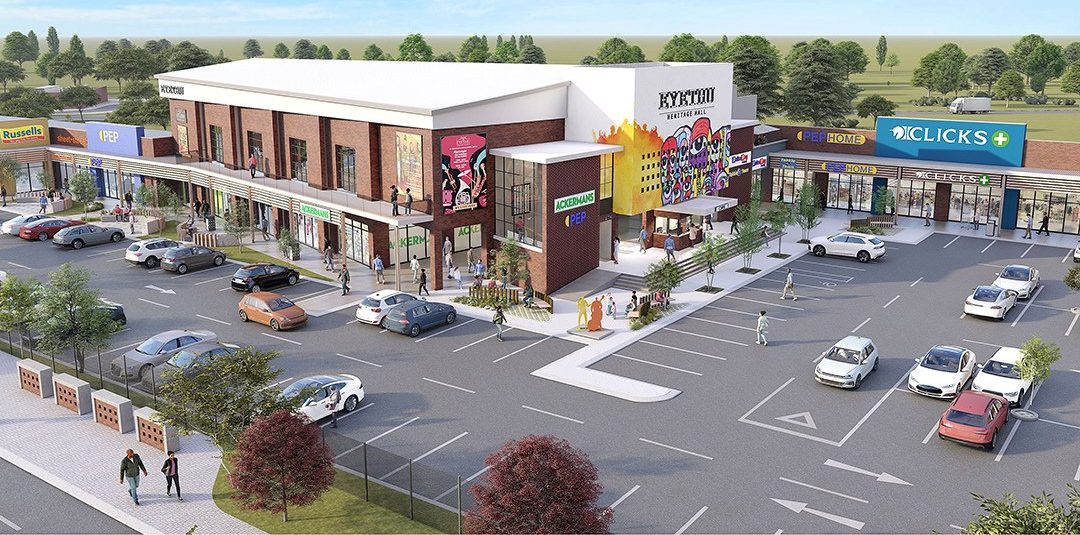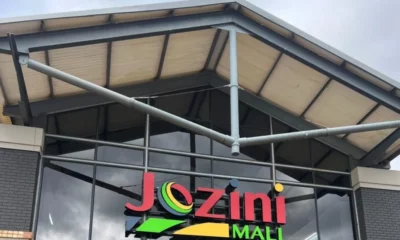Business
Three South African Malls Sold for R209 Million to Fund European Expansion

South Africans may be familiar with the Eyethu Junction or have picked up a few essentials at the Nquthu Shopping Centre. But as of this week, ownership of these bustling community hubs is changing hands. Collins Property Group has sold three shopping centres, Eyethu Junction, Nquthu Shopping Centre, and Ezulwini Royal Shopping Centre, for a combined R209 million. The catch? The funds are headed not into local infrastructure or community reinvestment, but overseas — to back property developments in the Netherlands.
From KwaZulu-Natal to the Netherlands
The Collins Property Group, a long-standing player in South Africa’s commercial property scene, announced the sale as part of a strategic decision to “recycle capital.” Two of the centres, Nquthu and Ezulwini (Ulundi), were sold for R106 million through its subsidiary Imbali Props 21. The third, Eyethu Junction, was offloaded by Colkru Investments (90% owned by Collins) for R103 million. All three properties were bought by Fairvest, a JSE-listed property company with a focus on retail centres servicing lower-income communities.
While many locals may assume such a sale would lead to further investment in South African malls or retail infrastructure, Collins has earmarked the cash for growth opportunities in Europe — specifically the Netherlands. It’s a decision that underlines the rising tension in the country’s property market: is local real estate still a safe bet, or are investors hedging their bets abroad?
Community centres with strong performance
Let’s be clear: this wasn’t a fire sale. The three properties have been performing steadily. The combined net operating income for Nquthu and Ulundi reached just under R9.6 million for the year ending February 2025. Eyethu brought in over R9.8 million in the same period. The sale prices, according to Collins, reflect fair market value and were approved internally without needing shareholder votes.
But for communities in Ulundi, Nquthu, and Soweto, where Eyethu Junction is located — there’s natural concern about what this shift means for the daily shopping experience, jobs, and local vendor opportunities. These centres aren’t just bricks and mortar; they’re part of the social fabric.
A legacy company chasing global returns
Founded in 1904 as a steam joinery workshop, Collins Property Group has grown into a multi-national real estate investor with over 120 properties across Southern Africa and Europe. It’s listed as a Real Estate Investment Trust (REIT) on the Johannesburg Stock Exchange, although its share price hasn’t shown much movement over the last five years.
The group’s current portfolio strategy includes both developing new properties and refurbishing existing ones — but increasingly, those developments appear to be located outside South African borders. With inflationary pressures, a sluggish job market, and frequent service delivery issues at home, it’s easy to see why companies might look to more stable European markets to grow.
Local voices ask: what about us?
While the financial media has focused on the capital strategy behind the move, local chatter tells a different story. On social media, questions are surfacing about whether this signals a longer-term divestment from South African retail by major developers. “R209 million could’ve gone into township regeneration, not Dutch malls,” one X (formerly Twitter) user posted.
Retail analysts point out that while sales like this can improve liquidity for large firms, they often come at a cost to local economic development. “It’s not just a shopping centre. It’s a heartbeat of economic activity in places that need it most,” said one urban planning expert.
The bigger picture: investment outflow amid uncertainty
This move by Collins adds to a growing trend of capital flight from South Africa’s real estate and infrastructure sectors. With concerns about interest rates, inflation, load shedding, and municipal governance, even long-established players are increasingly eyeing overseas opportunities.
Still, it raises important questions for South Africa’s future. Can domestic investors be convinced to stay and build if the local regulatory and economic climate doesn’t shift?
In the end, this isn’t just a story about three shopping centres. It’s a reflection of where we are, and where capital thinks it’s safer to be.
{Source: BusinessTech}
Follow Joburg ETC on Facebook, Twitter , TikTok and Instagram
For more News in Johannesburg, visit joburgetc.com





















